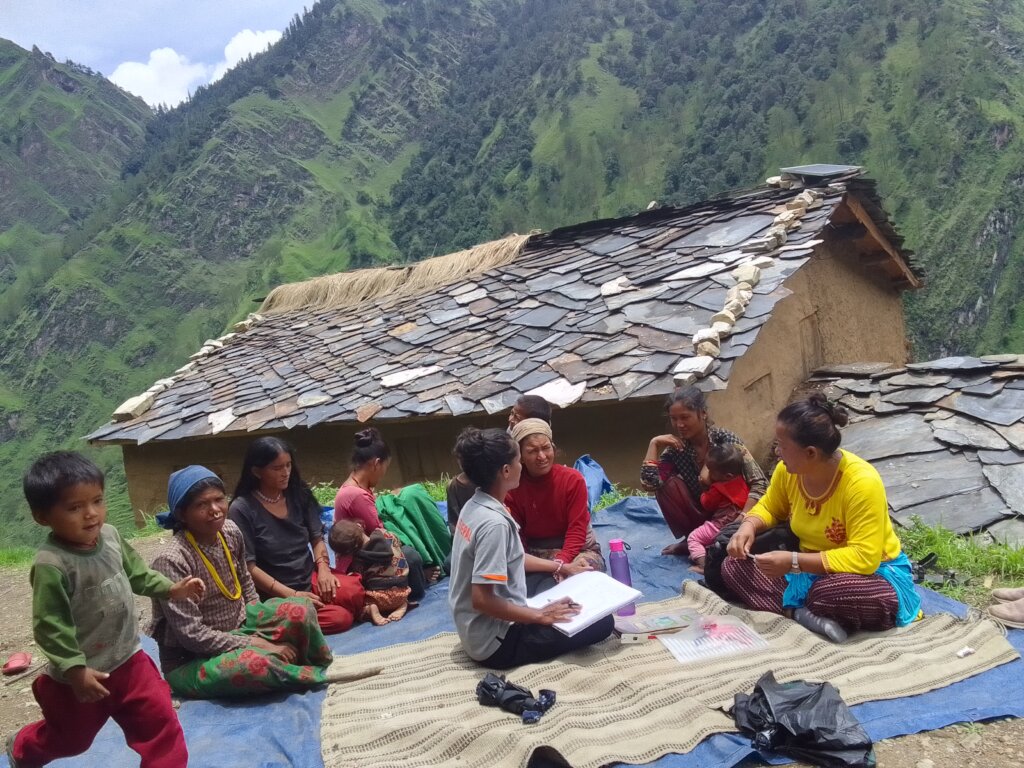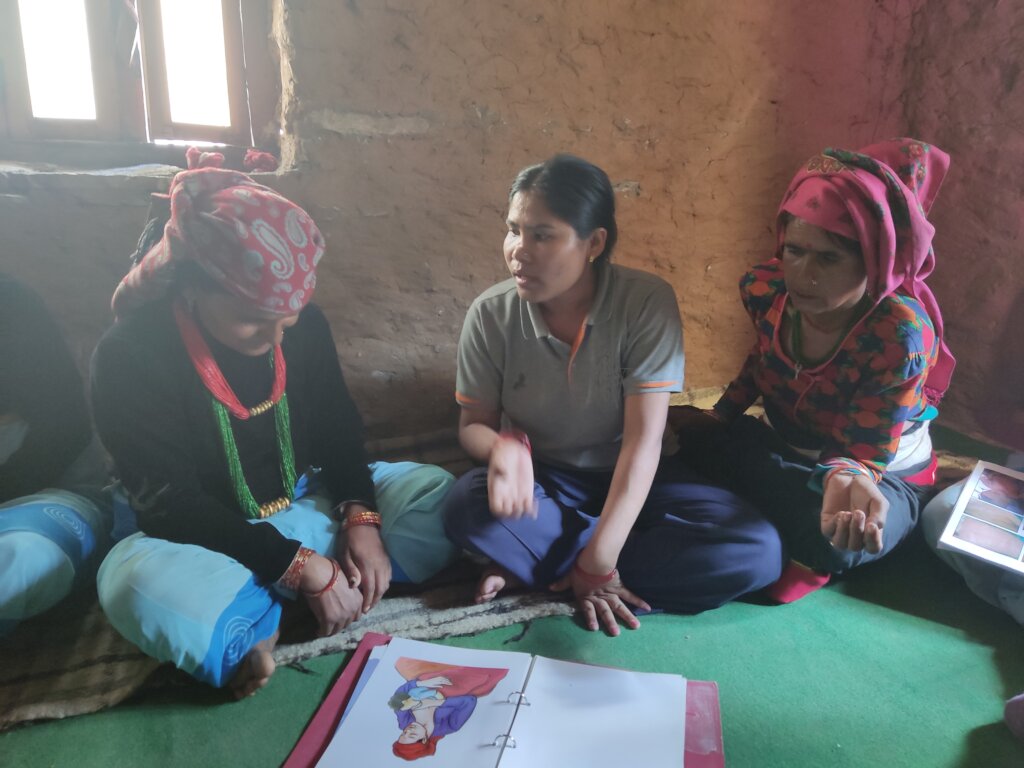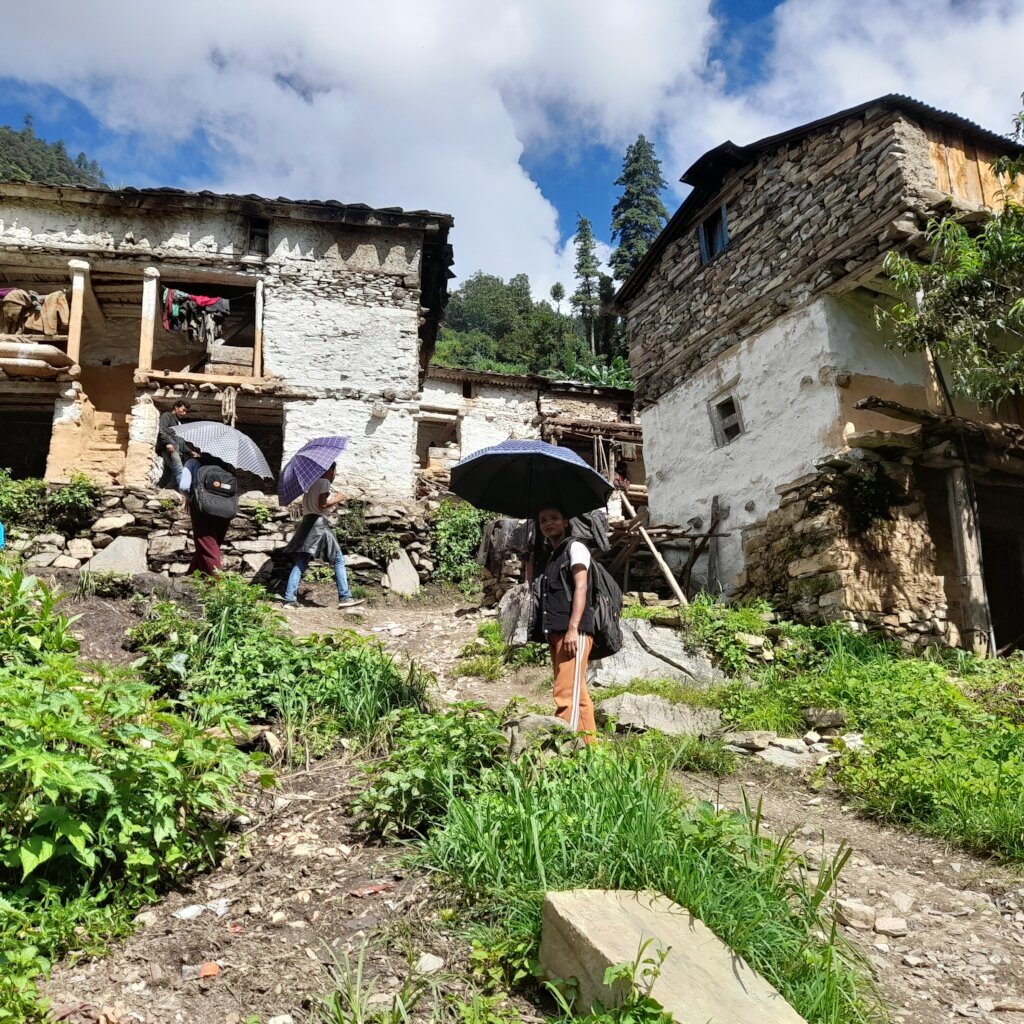By Meetum Bantawa Rai | Communication Officer
Dear Friends,
We all have faced that our lives have been hugely impacted by the coronavirus in different ways. In the past few years, due to the supply chain disruption caused by the pandemic, the reach of essential and basic needs has changed globally. Like price hikes on basic food items and essential services. In the areas, where we work, the most vulnerable districts of Nepal: Humla, Bajura, Mugu, Gorkha, and Sindhupalchok districts the needs like basic food items and emergency health care were already scarce.
Even during the pandemic, we were able to continue the essential and emergency health care service. We sincerely appreciate your support, which has been continuous ever since the COVID-19 pandemic. In Nepal, as of October 2022, 79.05 percent of adults and 99.5 percent of children under 12 year’s age have received the full three dosages of the COVID-19 vaccine. We were also able to acquire enough personal protective gear and materials for infection control for our rural health workers with your support. It enabled them to serve the community while feeling safe and motivated until today.
As our team has continued the essential services since the first wave of the COVID infection. They have experienced various forms of action from the community people to the new virus. In this edition, we will share your experience with our healthcare staff; how they were able to guide the community people during the pandemic.
Let’s hear from Ms. Sarita Ghising, ANM (Used with permission), she has worked with PHASE Nepal for the past eight years in Nepal’s Himalayan districts.
She shared, “These few years have been the most challenging and memorable for all the health workers. I have been working in remote communities for several years. Where we mostly had to take care of illnesses like diarrohea, dysentery, malnutrition, pregnancy, etc., which I knew how to handle and treat successfully.
But the experience with the pandemic was new, and even we were worried. With orientation by our senior team and timely geared with PPE sets, additional emergency medicines, and antigen test kits, we were ready.
At the same time in a village called Bama in Bajura district, several people were falling sick with similar symptoms. As we had already received antigen test kits, we tested and about 22 people tested positive. So, in this way with the antigen test kit at the right time, we were able to aware people of COVID isolation and preventive measures. Later, also reached out to people with symptoms and provided them with medications and family orientation.
Similarly, when the vaccine came people were reluctant to take the vaccine. There were several rumors, we oriented about the essentials of vaccines at communities and door-to-door visits. Now, most of the people at our workstation are vaccinated and aware of the precaution measures.”
Similarly, also people were traumatized and were not willing to let outsider enter their village. They had placed unplanned check-post at the entrance and blocked roads to restrict vehicle movement.
Dinesh Sunar, Health Assistant and Health Supervisor (Used with permission) shares, “People were scared about the new infections. They anyhow wanted to save their village. Like at the village I worked (Bhotang, Sindhupalchok), they blocked roads with trees and large stones.
When roads were blocked to avoid COVID infection, a mother with complicated delivery who needed a hospital service was unable to get an ambulance service on time. At that time we carried her on a stretcher for about an hour to take her to the road facility.
With continuous orientation sessions and door-to-door visits, we were able to open the roads, support isolation centers, and maintain a safe distance at the village. This is one of the most memorable incidents in my career.”
Until today, we have continued the services at the Himalayan communities. In the year July 2021- July 2022, our frontline workers have been able to provide 298 safe deliveries in remote areas of Humla, Bajura, Mugu, and earthquake-affected districts Gorkha and Sindhupalchok.
In addition, 58,928 cases received medical consultation services and medicine through PHASE-supported clinics, with 16, 817 children under the age of five receiving treatment for life-threatening illnesses such as diarrhea and pneumonia. 64,014 community people were engaged at various community meetings, orientations, training, and door-to-door visit event on health-related topics. Our staff was able to provide primary health care and 24-hour emergency service, as well as provide community members with information on how to respond appropriately throughout the pandemic.
PHASE Nepal is committed, as always, for the safety of its team members. Adequate supplies were maintained at each location and every staff is advised to use personal protective equipment while making patient consultations for infection prevention. All of our work would not have been possible without the kind contribution of our donors like you. We really appreciate your willingness to ultimately empower Himalayan frontline health workers during the pandemic.
PHASE Nepal Team
Project reports on GlobalGiving are posted directly to globalgiving.org by Project Leaders as they are completed, generally every 3-4 months. To protect the integrity of these documents, GlobalGiving does not alter them; therefore you may find some language or formatting issues.
If you donate to this project or have donated to this project, you can receive an email when this project posts a report. You can also subscribe for reports without donating.
Support this important cause by creating a personalized fundraising page.
Start a Fundraiser

